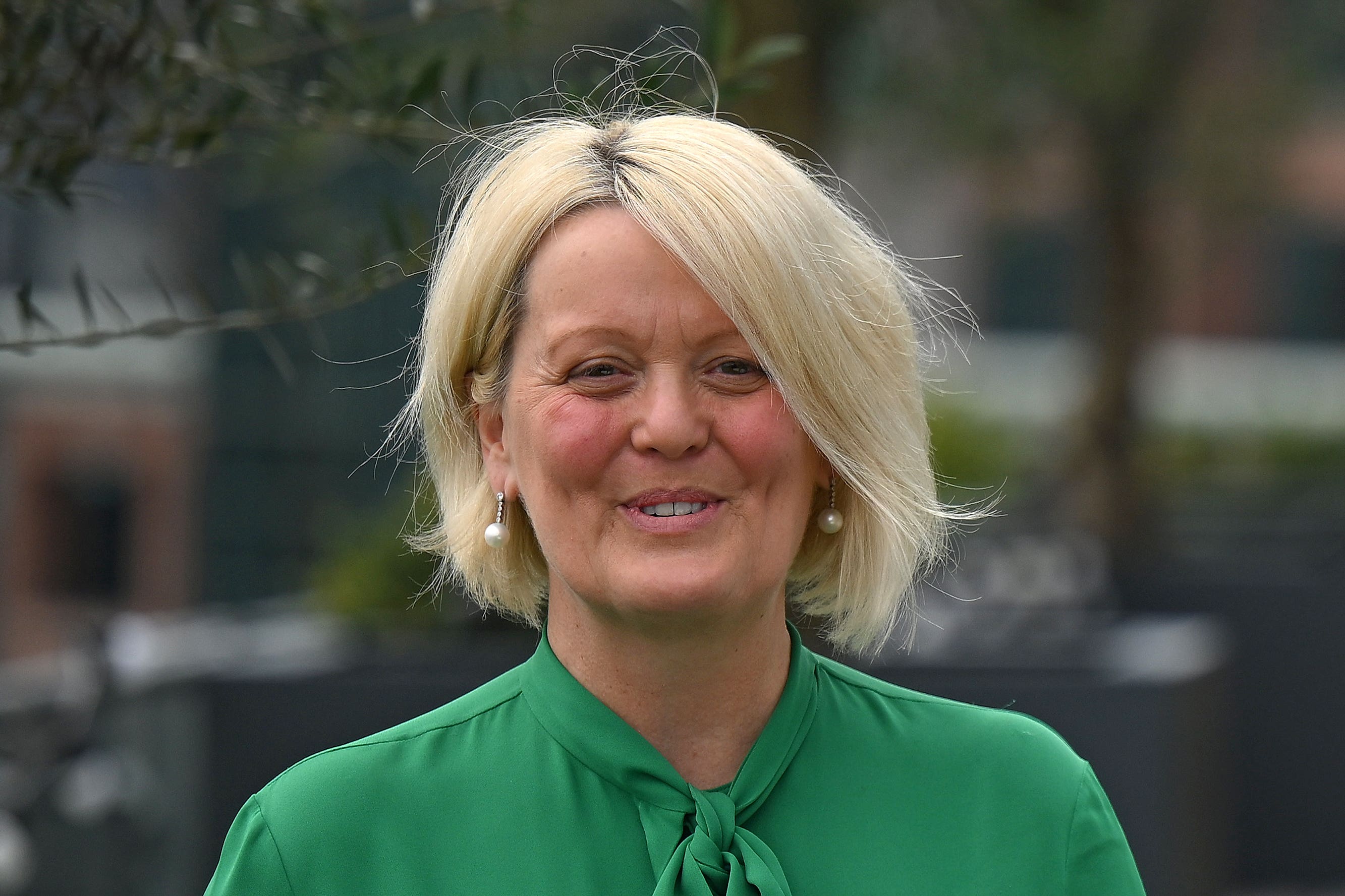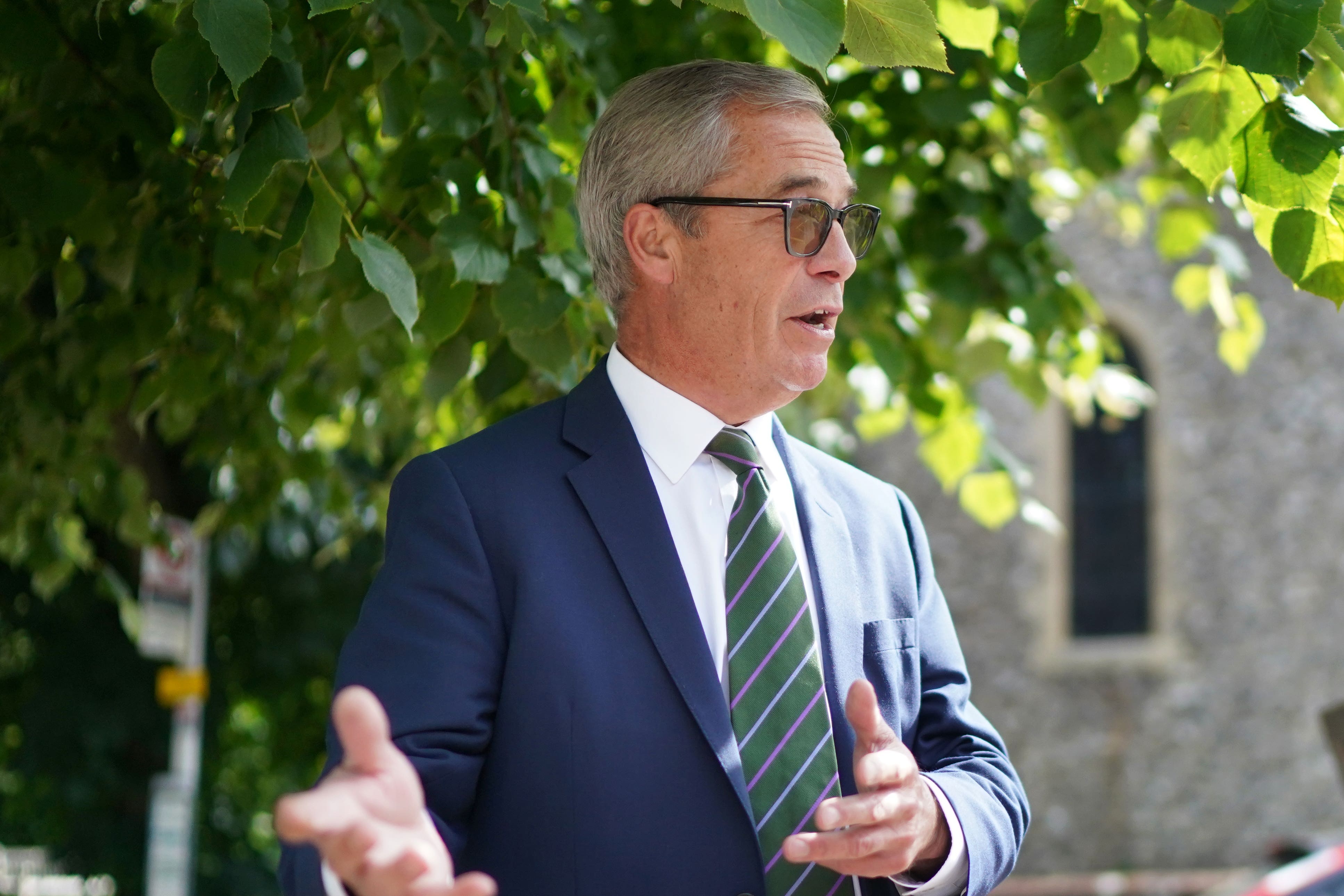NatWest sees £850m wiped from its value after Nigel Farage calls for heads to roll
Dame Alison Rose’s overnight decision to quit after leaking a story about Nigel Farage’s bank account to the BBC rocked NatWest and the wider banking sector
Your support helps us to tell the story
From reproductive rights to climate change to Big Tech, The Independent is on the ground when the story is developing. Whether it's investigating the financials of Elon Musk's pro-Trump PAC or producing our latest documentary, 'The A Word', which shines a light on the American women fighting for reproductive rights, we know how important it is to parse out the facts from the messaging.
At such a critical moment in US history, we need reporters on the ground. Your donation allows us to keep sending journalists to speak to both sides of the story.
The Independent is trusted by Americans across the entire political spectrum. And unlike many other quality news outlets, we choose not to lock Americans out of our reporting and analysis with paywalls. We believe quality journalism should be available to everyone, paid for by those who can afford it.
Your support makes all the difference.Dame Alison Rose’s dead-of-night resignation as NatWest chief executive wiped £850m off the value of the taxpayer-backed bank.
Her decision to quit – after admitting she leaked a story about Nigel Farage’s Coutts bank account – has rocked NatWest and the wider banking sector.
The move prompted Mr Farage to call for the rest of the NatWest board to quit over the row, adding that the Coutts CEO Peter Flavel’s position was also “unsustainable”. Coutts is owned by NatWest.
Dame Alison’s departure was announced just after 1.25am on Wednesday morning.
The markets responded, with 3.7 per cent, or £850m, knocked off the firm’s value – making it the biggest loser on the FTSE 100. Her resignation meant more than £320m was wiped from the 39 per cent stake in NatWest that is owned by the taxpayer.
On the same day, Lloyds Banking Group was down 2.7 per cent despite a surge in half-year profits and Barclays dropped by 1.8 per cent. Hargreaves Lansdown analyst Susannah Streeter told The Independent that investors feared “ripple effects” from the row and the potential for tougher regulation.
The Information Commissioner’s Office (ICO) also confirmed it is examining a claim by Mr Farage that NatWest breached its duty of confidentiality. If proven, the bank could be fined up to £17m.
Mr Farage blasted NatWest as “dishonest” over the affair and said he had been de-banked because of his political views.

In a day of drama on Wednesday:
- Dame Alison quit NatWest “by mutual agreement” just hours after executives expressed “full confidence” in her
- Mr Farage called for the rest of the board to resign, accusing them of having “sanctioned this culture”
- Rishi Sunak and Treasury minister Andrew Griffith backed Dame Alison’s decision to step down
- Dame Alison was also asked to leave positions on three government advisory boards
- Sir Keir Starmer said nobody should be refused banking services because of their political views
- Pressure grew on Peter Flavel after Tory minister Andrew Griffith refused to publicly back him
- Mr Farage warned other banks who have turned him down to “think again”, saying this “could happen to you too”
Dame Alison’s shock resignation came after she acknowledged making a “serious error of judgement” by discussing Mr Farage’s relationship with private bankers’ Coutts with a BBC journalist.

The leak led BBC business editor Simon Jack, who had sat next to Dame Alison at dinner the night before, to claim Mr Farage’s Coutts account was closed because he did not have enough money.
Mr Farage used a subject access request to obtain a 40-page dossier from the bank which suggested his account had in fact been closed in part due to his political views. The dossier described Mr Farage as “xenophobic and racist” and a “grifter”.
The row marked a humiliating end to Dame Alison’s 30-year career with NatWest, with the bank’s chairman describing her departure as “a sad moment”.
Despite NatWest executives initially saying she could stay on, pressure from Downing Street for her to quit saw her forced out after a late-night board meeting. Jeremy Hunt was understood to have “deep concerns” about her staying on at the bank.

And her decision to quit was welcomed by Mr Sunak and treasury minister Andrew Griffith.
A No 10 source said the prime minister “was concerned about the unfolding situation. Alison Rose has done the right thing in resigning”.
The source said: “Everyone would expect people in public life – whether that’s in a business leadership role or otherwise – to act responsibly and with integrity.”
And Mr Griffith said “it is right” Dame Alison had quit and the crisis “would never have happened” if NatWest had not decided to “withdraw a bank account due to someone’s lawful political views”.
Labour leader Sir Keir Starmer said NatWest “got this one wrong” and Mr Farage should not have had his account closed.
Sir Keir said: “I certainly don’t think anybody should be refused banking services because of their political views, whoever they are.” The Labour leader said there should be exemptions for extremists, such as terrorists.

But his shadow chancellor Rachel Reeves accused Dame Alison’s critics of “bullying”, insisting her focus would be on cost of living, rather than the row over Mr Farage’s bank accounts.
The former Brexit Party leader said Dame Alison’s resignation and the chaos caused by the ongoing row could have been avoided if Mr Flavel had taken responsibility for de-banking him.
He said Mr Flavel’s position was “unsustainable on every level” after ignoring three attempts by Mr Farage to ask about the account closure.
“He is totally incompetent, does he care? Has he been in hiding?” Mr Farage said.
Speaking to The Independent, Mr Farage said: “His position is completely unsustainable at every level.”
And senior Tory MP David Davis said that while it was right Dame Alison had quit, adding “somebody has to carry the can for the actual action taken against Nigel Farage”.
Mr Griffith, economic secretary to the Treasury, refused to back Mr Flavel staying in post. Speaking to the BBC’s World at One, he said: “There should be lessons learned.”
After resigning, Dame Alison was also forced out of roles on three government advisory boards.
Energy secretary Grant Shapps asked her to quit the department’s energy efficiency task force, which she joined in February. No 10 confirmed she had stood down from the prime minister’s business council, which she joined last week, and the Department for Business and Trade said she had left her role as chair of the Rose Review looking at women’s enterprise.






Join our commenting forum
Join thought-provoking conversations, follow other Independent readers and see their replies
0Comments